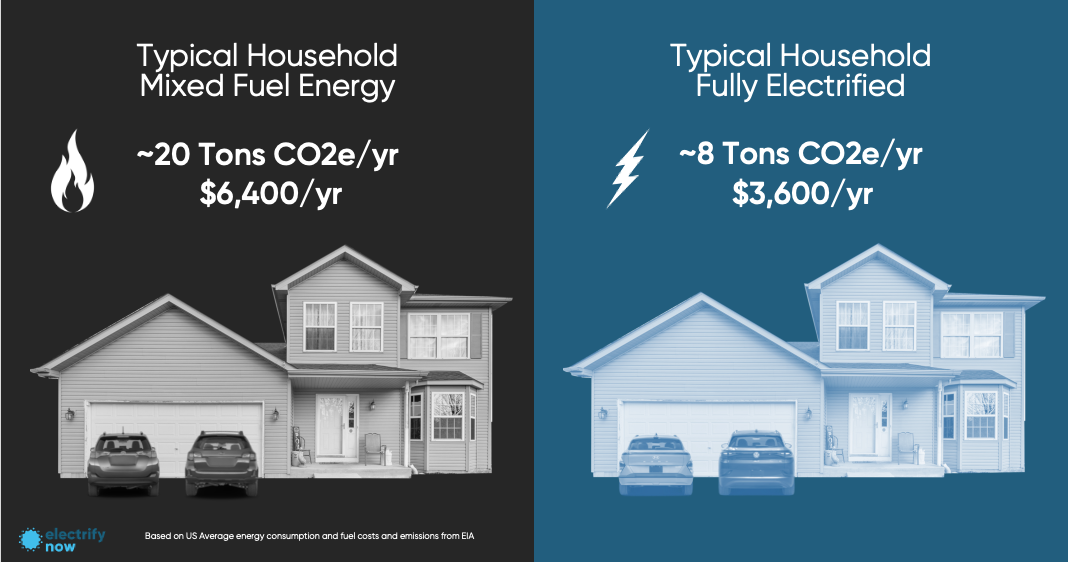Fact: All-electric homes save money and reduce carbon emissions
Upgrading our homes to eliminate on-site burning of fossil fuels has multiple benefits: lower operating costs, much lower carbon emissions, as well as increased comfort and safety.
An all-electric home in the US that uses the national average amount of energy for heating and water heating, with 2 cars driven the average number of miles with the average energy efficiency will save nearly $3,000 per year by upgrading to efficient electric solutions:
Water Heating $250/yr savings by upgrading to a Heat Pump Water Heater
Space Heating $220/yr savings by upgrading to a Heat Pump
Auto Travel $1,150/yr savings for each car upgraded to an EV
Total Savings: $2,800/yr in reduced energy bills
As the grid gets cleaner, household emissions from all-electric homes will drop every year. But even with the electric grid as it is today, powered partially by fossil fuels, an all-electric home produces far fewer carbon emissions than homes that burn natural gas on-site. EVs are dramatically cleaner than cars that burn gasoline:
Water Heating 1.2 Tons CO2e/yr avoided by upgrading to a Heat Pump Water Heater
Space Heating 2.3 Tons CO2e/yr avoided by upgrading to a Heat Pump
Auto Travel 4.3 Tons CO2e/yr avoided by upgrading to an EV
Total Savings 12 Tons CO2e/yr in reduced carbon emissions
These calculations use data from the EIA on US average household energy consumption, EIA data on energy costs, Federal Highway Administration data on average annual vehicle miles travelled and fleet fuel efficiency, AAA for current gasoline costs, EnergyStar data on energy consumption for water heaters, and electricity carbon intensity data from the EIA and fuel carbon intensity data from Oregon DEQ.

